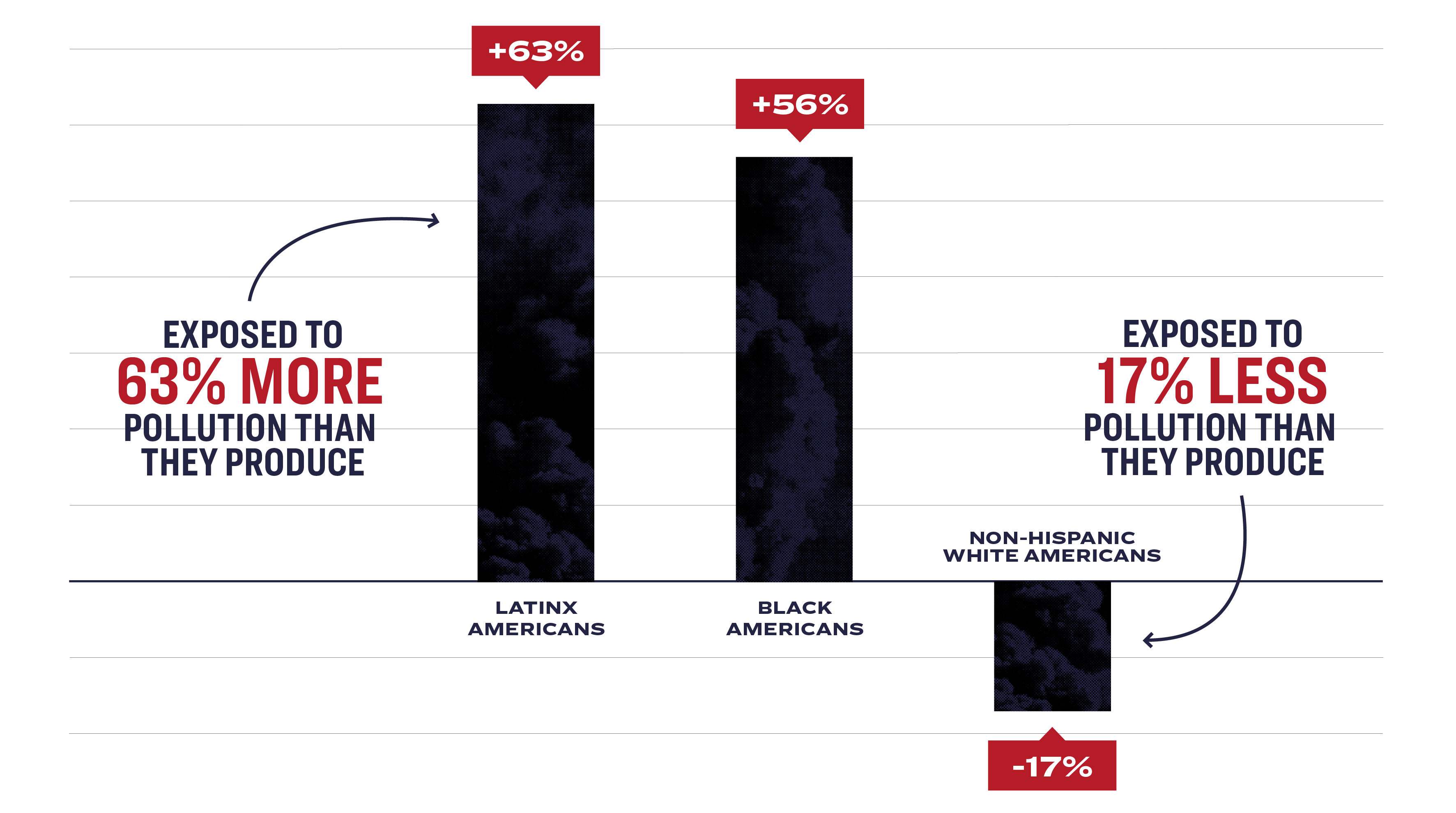
Environmental racism is a "form of systemic racism whereby communities of color are disproportionately burdened with health hazards through policies and practices that force them to live in proximity to sources of toxic waste," (What is Environmental Racism and how can we Fight It, 2020). This can be seen with sewage works, mines, landfills, power stations, and more. As a result of being close to hazardous conditions, these communities suffer higher rates of health issues.

As previously stated, communities of color are disproportionately burdened by environmental hazards. This makes them far more likely to live in areas with heavy pollution, and therefore, face more health issues related to the environment. In America alone, more than 1 million African Americans live within a half-mile of natural gas facilities (Patnaik et al., 2020). As a result of poor air quality, many African Americans face heightened risks of asthma and even cancer.

Research on environmental racism began in the late 1970s after an incident with residents of a black neighborhood in Houston, Texas. The community had found out that the state would place a solid-waste facility in their neighborhood. This led them to question why it was being placed there and not in a white area. Thus, Sociologist Robert Bullard later named the father of environmental justice, decided to see for himself. Bullard found that 14 of the 17 industrial waste sites that the city had were situated in black neighborhoods. This accounted for more than 80% of the city's waste in black neighborhoods, which only comprised 25% of Houston's population (Borunda, 2021). This was the start of the movement of minorities fighting for environmental justice.

Photo of Robert Bullard
There are many reasons why environmental racism occurs. Looking back at the history of America, slavery has been a forerunner to the more recent inequalities. "The historical discriminatory practices in housing, education, employment, and healthcare all played a role in the manifestation of these inequalities that contribute to greater vulnerability to climate impacts (Patnaik et al., 2020). There is also the intentional and unintentional discrimination of placing waste buildings in minority neighborhoods. In addition to this, there is unequal enforcement of environmental laws while also excluding black and other minority groups from decision-making processes (Borunda, 2021). All of these factors add up to create an even bigger problem.
Black Millennials for Flint is a "national environmental justice and civil rights organization with the purpose of bringing like-minded organizations together to collectively take action and advocate against the crisis of lead exposure specifically in African American and Latino communities throughout the nation," (Black Millennials for Flint, 2021). In particular, they are working towards fighting against the environmental racism that is present in Flint, Michigan. The actions they are taking include raising funds, cultivating resources, advocating, educating the public, and building coalitions with like-minded organizations.
To take action, you can contact the organization via the Link to Contact Black Millennials for Flint
In addition, you can donate to help support them via the Link to Donate

Black Millennials for Flint. Black millennials 4 flint. (2021). Retrieved October 24, 2022, from https://www.blackmillennials4flint.org/
Borunda, A. (2021, May 4). The origins of environmental justice-and why it's finally getting the attention it deserves. Environment. Retrieved October 25, 2022, from https://www.nationalgeographic.com/environment/article/environmental-justice-origins-why-finally-getting-the-attention-it-deserves
Patnaik, A., Son, J., Feng, A., & Ade, C. (2020, August 15). Racial disparities and climate change - psci. Princeton University. Retrieved October 25, 2022, from https://psci.princeton.edu/tips/2020/8/15/racial-disparities-and-climate-change#:~:text=Environmental%20racism%20refers%20to%20the,in%20areas%20with%20heavy%20pollution.
What is environmental racism and how can we fight it? World Economic Forum. (2020, July 31). Retrieved October 13, 2022, from https://www.weforum.org/agenda/2020/07/what-is-environmental-racism-pollution-covid-systemic/
